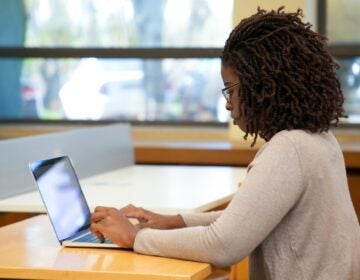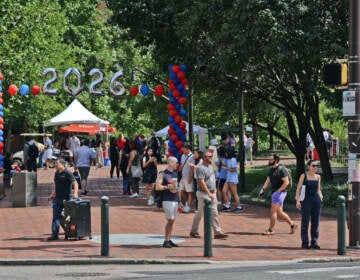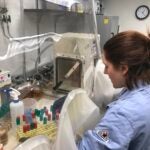What’s fun and safe for kids this summer? Some tips for parents
They’ve had enough of being cooped and homeschooled. Here’s how to balance the joy of (socially distant) playtime with common-sense precautions.
Listen 2:03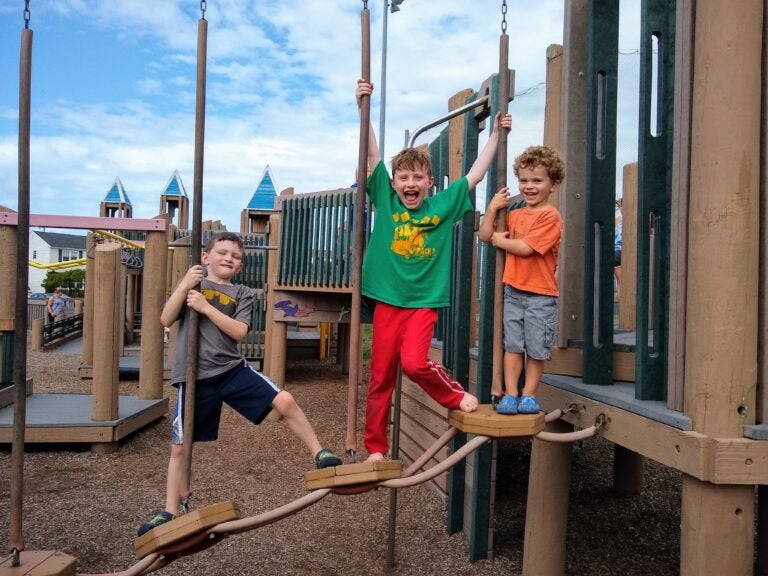
The Hoover kids are Nathan, 9, Austin 7, and Wyatt, 4. (Courtesy of Laura Hoover)
Are you on the front lines of the coronavirus? Help us report on the pandemic.
Socially distant summer has officially arrived. Home school is done, and it’s time to go outside and play.
What does that mean this year, when children’s lives have been upended by the coronavirus and so many have spent months cooped up inside with only parents and siblings for company? Is it possible for kids to have a safe summer in the sunshine?
The Centers for Disease Control and Prevention acknowledges that getting outside and being physically active is essential for young minds and bodies, and there’s substantial evidence that isolation is bad for people of all ages. During the COVID-19 pandemic, being with lots of people can seem truly terrifying. But experts in pediatric health say that, with some judgment and caution, things can be surprisingly normal.
Certainly, both children and parents are looking forward to normal.
“Last summer, I worked very hard to put one kid in camp each week and kind of separate them so that they could have a break from each other,” said Laura Hoover, who has three boys, ages 9, 7 and 4, two of whom have special needs. Camp gave her and her kids some much-needed space last year, so she’s going ahead with it again this year.
It was a popular decision, especially with her 4-year-old, Hoover said.
“He was beside himself, so happy this morning. He was so excited to go,” she said. “When I told him that he got to go, he said to me, ‘I almost forgot what the playground looks like.’”
What you want in a camp right now
Katie Lockwood, an attending physician at Children’s Hospital of Philadelphia, said parents should think about activities that give children “a lot of outside playtime, where they can be physically separated a little bit more, and … that fresh air and circulation can also be really beneficial.”
Susan Coffin, an attending physician for the Division of Infectious Diseases at CHOP, agreed and noted that location is important too. Generally, you don’t want to go to a camp that is in an area with more COVID cases than where you’re coming from; the same goes for summer vacations. Camps with small groups of kids that involve a lot of time outside are better.
Although some camps aren’t opening this year, many still are.
Louise Wulfsohn is on the other side of the camp equation: Her 16-year-old son is working at a summer camp. It is not a decision that their family took lightly, she said.
“He knows he’s wearing a face shield and a mask at camp, and he has got his hand sanitizer, and they’re taking kids’ temperatures and doing everything that they’re supposed to be doing, according to the CDC. I think there’s a certain false sense of security with all those measures in place because there’s still risk even if you use those measures,” said Wulfsohn.
They agreed that her son wouldn’t work for two weeks after the protests, and he’s going to stop working two weeks before their family vacation. They’ll be taking a trip with Wulfsohn’s parents, who are older, and so her family plans on shrinking their social bubble beforehand.
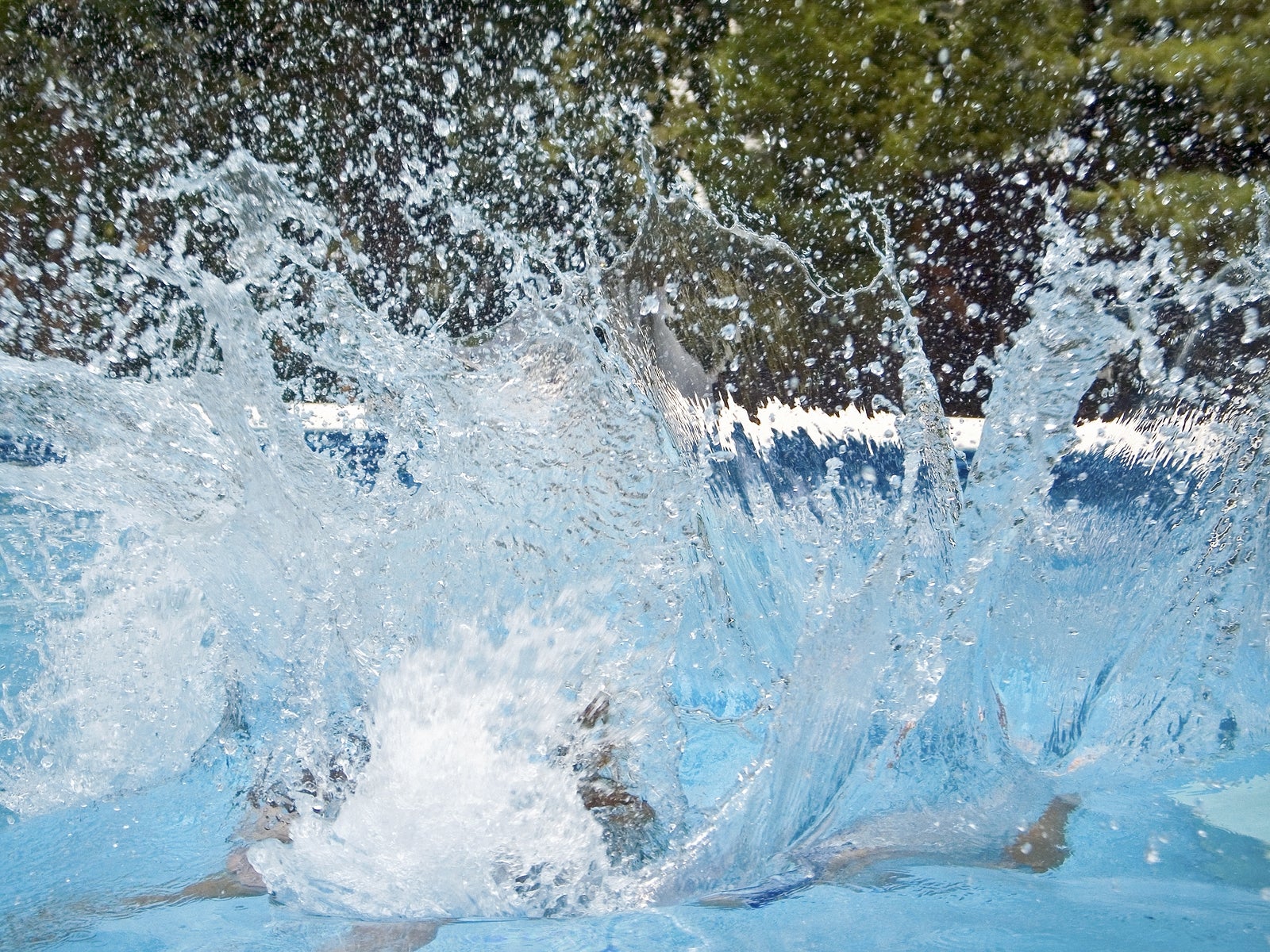
Wisdom about water fun
What about beating the heat and humidity by splashing around?
Philadelphia’s public pools are closed this summer, though some suburban and private club pools may be opening as our “yellow” status switches to “green” over the next few weeks. Natural bodies of water — ponds, creeks and rivers — may be tempting, but warn your kids off, the experts say. Between sewage, dangerous currents and the recent death of two teenage boys in the Schuylkill River, swimming is advised only in approved swimming areas.
Chlorine, often used to disinfect swimming pool water, will kill the novel coronavirus, Coffin said, though the chances of a high, constant concentration in any pool are very low. That’s not the biggest issue, however.
“The other thing that’s inevitable with swimming, in particular with kids in swimming, is the amount of splashing and sputtering and frankly spewing of respiratory droplets. And sadly, that is the way that coronaviruses are spread,” she said. “Until we have exceptionally low levels of respiratory virus activity in our community, it might not be advised to go to a large pool with many people.”
As for smaller family pools, they’re OK as long as you feel confident about the other people swimming with you.
Coffin suggested sprinklers as a fun alternative. That’s what Hoover’s family will be doing.
“So we are probably going to just spend more time playing in the yard and with the hose and keeping it simple,” she said.
Philadelphia will reopen its public spraygrounds starting July 6.
What about the ocean? Is that safe? Yes and no. Coffin suggested taking a private car to the shore if possible, but if you’re using public transit, sit in a corner, clean the area and wear masks. And once you actually get to the beach, exercise a moderate amount of caution.
“So this is not the time to be on the boardwalk at the height of midday activity. Maybe this is the time when you go to the beach, you go down to the beach early in the morning and are the first ones there. But then decide to spend the midday off playing games back at wherever you’re staying, and then return to the beach towards the end of the day, when crowds are a little bit lighter,” she said.
Laura Baker has two teenagers, ages 15 and 13, and they’ve already been to the beach.
“I thought it went well,” Baker said. “I mean, it was very empty. I went on a Friday; I wouldn’t have gone on a weekend yet because I know that there’s no way you can social distance at the beach and those kinds of things on the weekend.”
They plan to go again for a week, but since they stay with family, Baker isn’t too worried.
Options for fun at home
Playdates are a safe possibility, although children’s health experts suggest trying to keep to a small circle of friends, and checking in with other parents to make sure everyone is on the same page about coronavirus precautions.
CHOP’s Katie Lockwood, who has young children herself, understands that kids and families really want to get out and see other people.
Laura Hoover said being home together in Doylestown and not leaving the yard has run its course.
“I feel like my kids need to get out of the neighborhood,” she said. “We need to be around other people, even if it’s from a distance, and we need to interact with not just each other.”
Although her 15-year-old isn’t as bothered, Laura Baker said her 13-year-old daughter definitely is looking forward to seeing people again.
“I mean, it’s definitely harder for my daughter because she misses her friends, and they didn’t really get to say goodbye,” said Baker, who lives in Bucks County. “There was no closure, they were at school one day and the next day they never went back. So, it’s strange.”
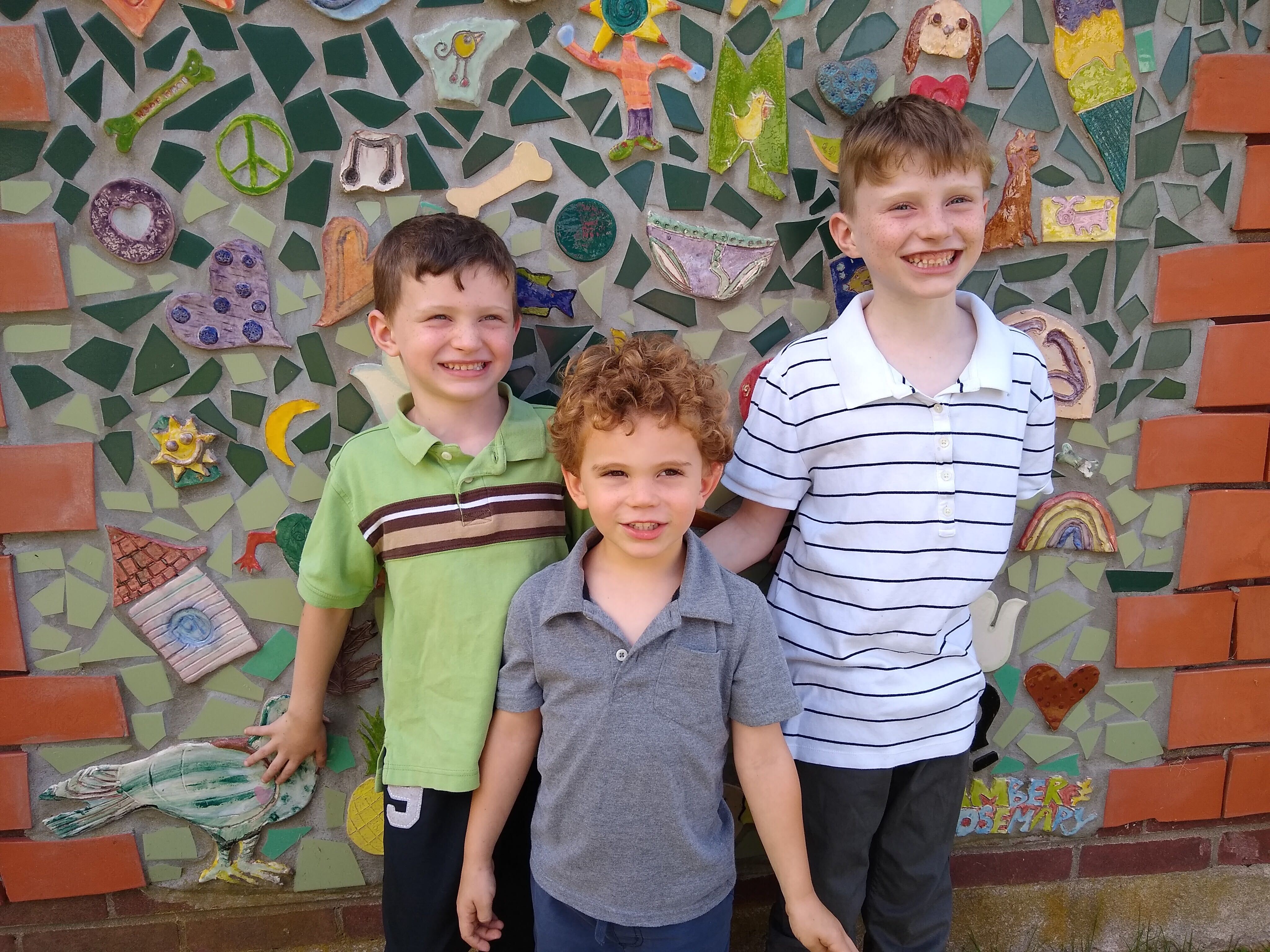
Hoover’s kids will be doing socially distant yard playdates, which she’s comfortable with. “I feel like as long as we’re outside and not, you know, touching each other’s things and not, you know, hanging on top of each other, that we will be OK with playdates.”
Lockwood said there are things kids can do that doesn’t put them too close to one another.
“Things where the kids can physically just enjoy a little bit more, so a bike ride, or a hike, where they can separate in space, and wear their masks, that can really help get that social interaction without them being so close that you’re worried about them sharing their germs as kids always do,” Lockwood said. “And so I think if they put a mask on and take a bike ride, that can be a really nice compromisable way to get social interaction and physical activity while minimizing the risks.”
For Wulfsohn’s younger son, who is 11, bike riding has been a big deal. “He really looked forward to it. I think we’ve had to kind of train him a little bit how to do that and be safe,” she said.
The family lives near the University of Pennsylvania, so that’s meant teaching a mix of public health information and basic bike safety, but that’s been a good thing, Wolfson said. “I think it’s given him a little sense of independence to do that. So that’s the silver lining.”
What about allergies, and summer colds?
Along with water ice and ice cream, summer typically brings allergies. If your child comes inside with a runny nose or a cough this not-so-typical summer, how worried should you be?
Jonathan Spergel, chief of the allergy program at CHOP, said it’s worth assessing the situation.
“If you go outside and you start sneezing and coughing, but when you go back inside, everything gets better, that’s probably not COVID-19. That’s probably just plain old seasonal allergies,” Spergel said. Another indicator would be red, itchy eyes, which are a symptom of allergies, not COVID.
Be sure kids get their medication for allergies and asthma. If they’re taking it and they’re still coughing, then you know there might be a problem. Bottom line, if you’re worried, get in touch with the doctor.
If you think you or your child has had a likely exposure to COVID-19, don’t panic, Coffin said. “The next steps really are to act as though you may be coming down with a coronavirus infection, and what that means is to stop interacting with larger groups. Isolate, go back into the activities as though you are quarantined, and typically, if about 10 days have passed without developing symptoms, it’s really unlikely that your child will develop symptoms, and they can then return to the usual activities. If, however, they develop deeper respiratory symptoms, that’s the time to be in touch with your pediatrician or your health care provider to check in and tell them about the fact that your child was exposed and now has symptoms.”
Masks are still a good idea, too, even though wearing them in the summer is not tons of fun.
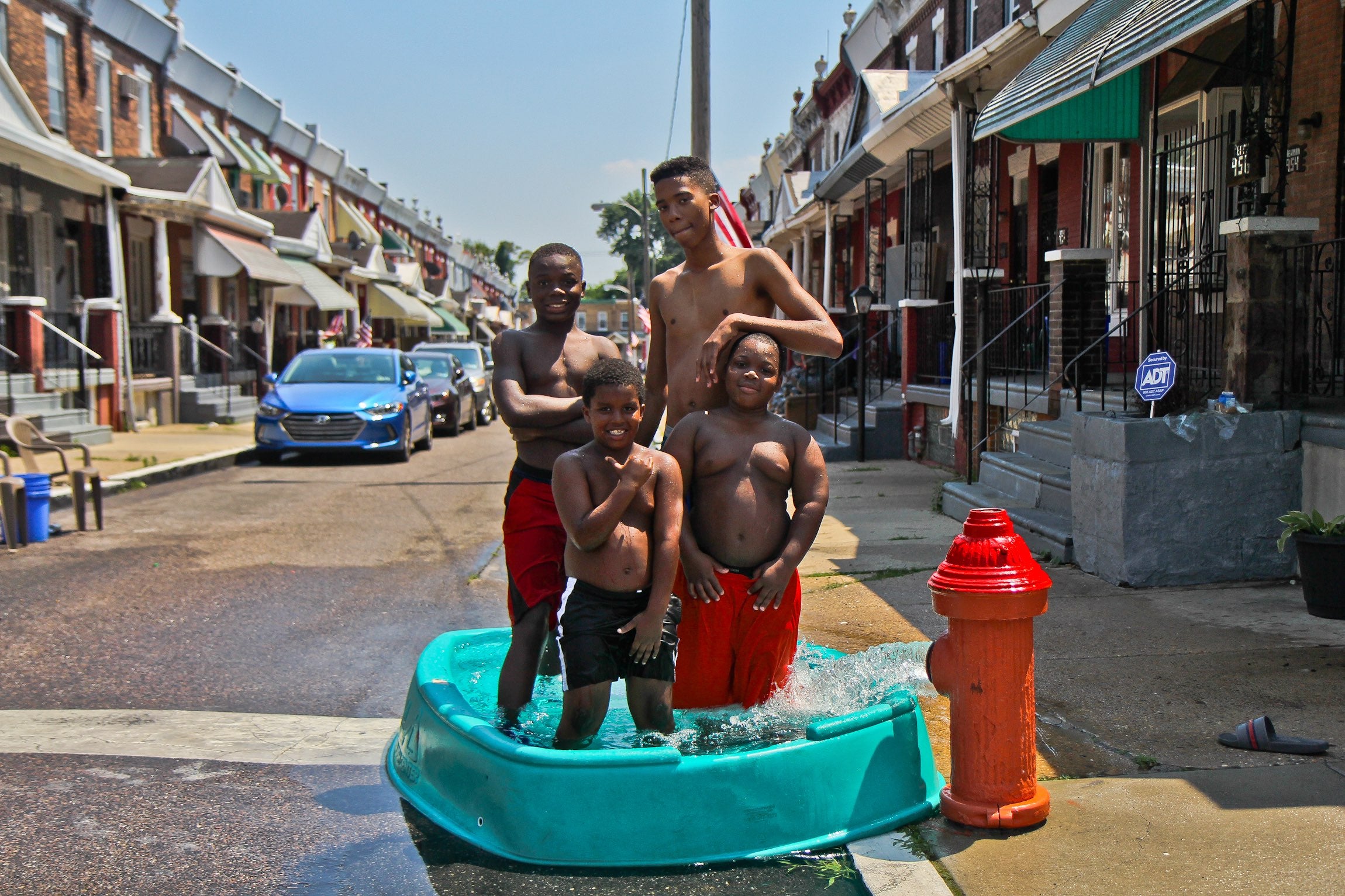
How do you calculate the risk?
Risk is cumulative, Coffin said. “I think there are ways that we can think about balancing risk by the choices that we make, not taking on a lot of big exposures simultaneously.”
It’s really a pattern of what you do and how careful you are over the whole summer, she said.
“So perhaps what your family might choose to do would be to go to a family barbecue with a couple of other families, that may be really important to your family,” Coffin said. “But you can balance that risk by not taking on any other risks,” such as going to the beach that weekend or spending a lot of time out in the park.
For parents, it’s a balancing act.
Wulfsohn and her family decided to take a little vacation with another family, “a socially distant camping trip, but we weren’t 6 feet apart from each other every single moment.” She and her family have loosened up a little bit, she said, but her son’s request to go on a car trip was a no. “You’re not safe. You’re in a car for a long period of time with people.”
A lot of it comes down to judgment, weighing individual risks and trying to keep the cumulative risk low. It isn’t easy, and different families have different rules.
Rhonda Boyd, a psychologist at CHOP, suggested that with teenagers it’s best to have a two-way conversation and to explain to them the public health risks to friends and family. It might even be helpful to talk through some situations they might be in when they’re out of the house and consider rewarding teens for following social distancing rules with a treat, like takeout from their favorite restaurant.
No matter what, this summer won’t be like others for kids or parents.
“It’s constant, questioning your judgment as a parent on a day-to-day, sometimes hour-to-hour basis,” Wulfsohn said.

Show your support for local public media
WHYY is your source for fact-based, in-depth journalism and information. As a nonprofit organization, we rely on financial support from readers like you. Please give today.



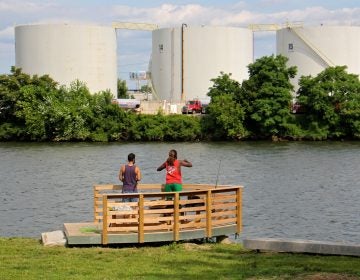


![CoronavirusPandemic_1024x512[1]](https://whyy.org/wp-content/uploads/2020/03/CoronavirusPandemic_1024x5121-300x150.jpg)
